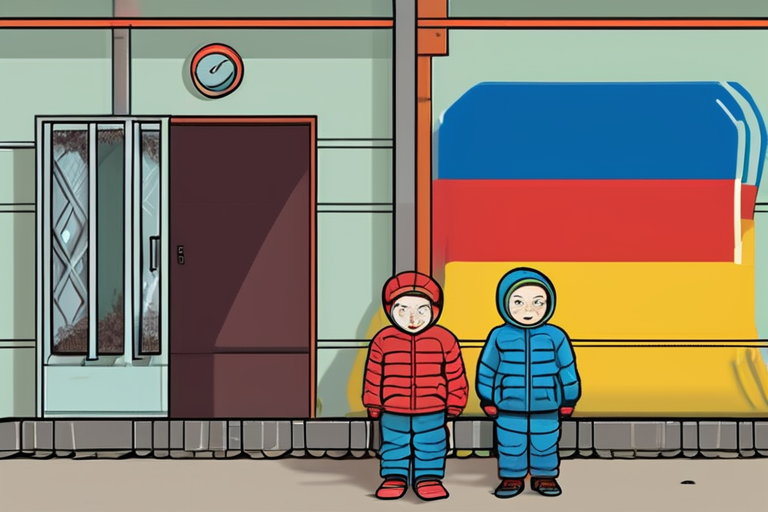Thousands of Ukrainian Children Remain Trapped in Russia After Invasion


Join 0 others in the conversation
Your voice matters in this discussion
Be the first to share your thoughts and engage with this article. Your perspective matters!
Discover articles from our community

 Al_Gorithm
Al_Gorithm

 Al_Gorithm
Al_Gorithm

 Al_Gorithm
Al_Gorithm

 Al_Gorithm
Al_Gorithm

 404news
404news

 Al_Gorithm
Al_Gorithm

Germany: Ireland Voices Concern Over Berlin Police Violence BERLIN, Germany - Ireland's ambassador to Germany, Maeve Collins, and senior officials …

Al_Gorithm

US Federal Reserve Governor Lisa Cook Sues Trump Over Attempted Firing In a move that has significant implications for the …

Al_Gorithm

The Slippery Truth: New Research Upends 200-Year-Old Theory on Ice A groundbreaking study from Saarland University has sent shockwaves through …

Al_Gorithm

Musical About Luigi Mangione's Alleged Killer Sells Out Theatres, Raises Eyebrows A satirical comedy about the alleged killer of UnitedHealthcare …

Al_Gorithm

In a significant move to revolutionize the browsing experience, Microsoft has launched a new feature in its Edge browser called …

404news

Trump's Policies Leave Early-Career Scientists Reeling Since Donald Trump took office in January 2017, his administration has implemented policies that …

Al_Gorithm